THE TROJAN WAR
The fall of Troy in 677 occurred at the close of the reign of Thuoris (694-677) of Egypt.
Thuoris was queen Twosre the pharaoh of Egypt of the Nineteenth Dynastyand when the Trojan war happaned the event in her last year of reign
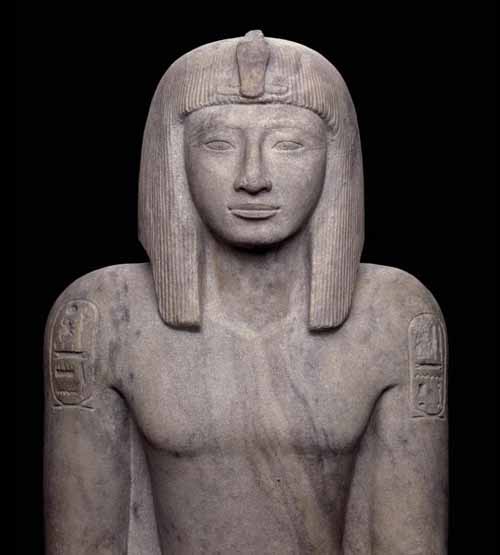
Twosre the pharaoh of Egypt
Twosre inherited the downful of Egypt after it was defested by Assyria
Ashurbanipal, king of Assyria
He is known in Greek writings as Sardanapalus and as Asnappeer or Osnapper in the Bible.



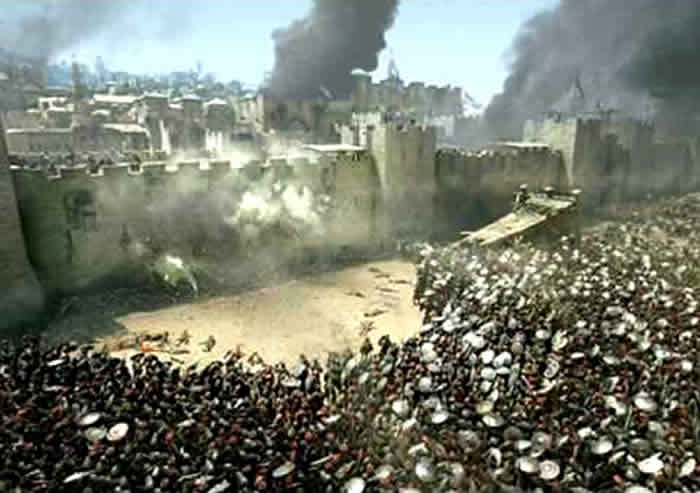

Taharqa king of Egypt when Ashurbanipal of Assyria
attacked Egypt
The fall of city of Thebes Egypt to the Assyrians and Egypt decline thereafter
In 667 BCE, attacked by the Assyrian king Ashurbanipal's army, Taharqa abandoned Lower Egypt and fled to Thebes. After his death three years later his nephew (or cousin) Tantamani (alt. Tanutamun) seized Thebes, invaded Lower Egypt and laid siege to Memphis, but abandoned his attempts to conquer the country in 663 BCE and retreated southwards. The Assyrians pursued him and took Thebes [5], whose name was added to a long list of cities plundered and destroyed by the Assyrians:
diary of Ashurbanipal:
This city, the whole of it, I conquered it with the help of Ashur and Ishtar. Silver, gold, precious stones, all the wealth of the palace, rich cloth, precious linen, great horses, supervising men and women, two obelisks of splendid electrum, weighing 2500 talents, the doors of temples I tore from their bases and carried them off to Assyria. With this weighty booty I left Thebes. Against Egypt and Kush I have lifted my spear and shown my power. With full hands I have returned to Nineveh, in good health.

The fall of this mighty city came as a shock to the Hebrews, who had been living in the Egyptian sphere of influence for centuries.
8 Art thou better than No, that was situate among the rivers, that had the waters round about it, whose rampart was the sea, and her wall was from the sea?
9 Ethiopia and Egypt were her strength, and it was infinite; Put and Lubim were thy helpers.
10 Yet was she carried away, she went into captivity: her young children also were dashed in pieces at the top of all the streets: and they cast lots for her honourable men, and all her great men were bound in chains.
Nahum 3
Egypt did not able to recover this loss
Formerly Egypt controlled the Ludim country incling the city of Troy

THE ANCIENT CITY OF TROY
THE ANCIENT KINGDOM OF LUDS (Lydia)
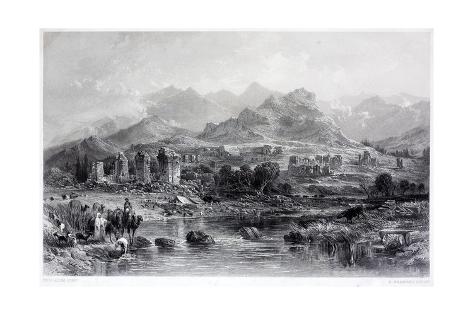

ancient city of sardis the capital city o the Luds
Mermnadae Kings of Lydia | Lengths of Reign | Dates |
| Gyges |
38
| 716-678 |
| Ardys |
49
| 678-629 |
| Sadyattes |
12
| 629-617 |
| Alyattes |
57
| 617-560 |
| Croesus |
14
| 560-546 |
Mermnadae kings of the kingdom of \Luds formerly were under the Egyptian authorities were replaced settled heavily by the children of Lud, son of SAMSI iLUNA FROM aSSYRIA.
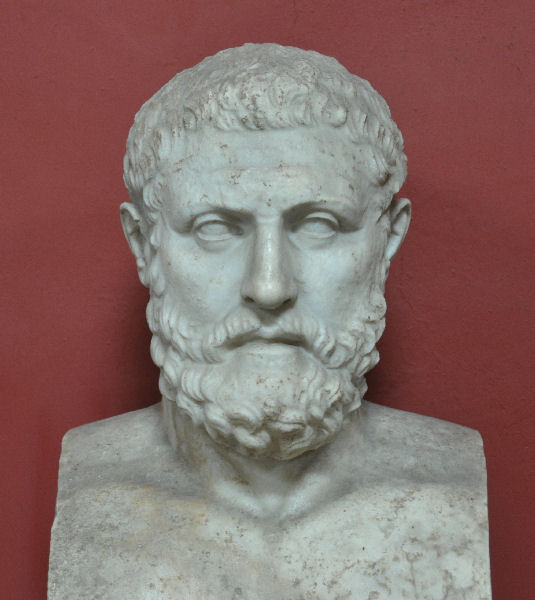
GYGES. KING OF THE LUD COUNTRY

Ardys , KING OF THELUDS
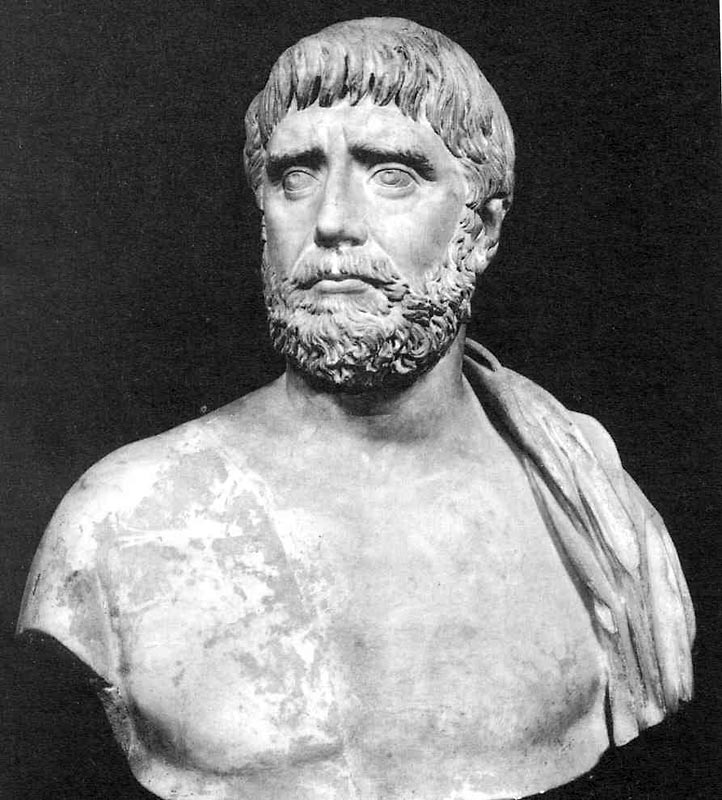
ALYATTES . KING OF THELUDS

CROESSUS KING OF THELUDS
///////////////////////////////////////////////////////////////////

city of Troy was a city near Pergamum


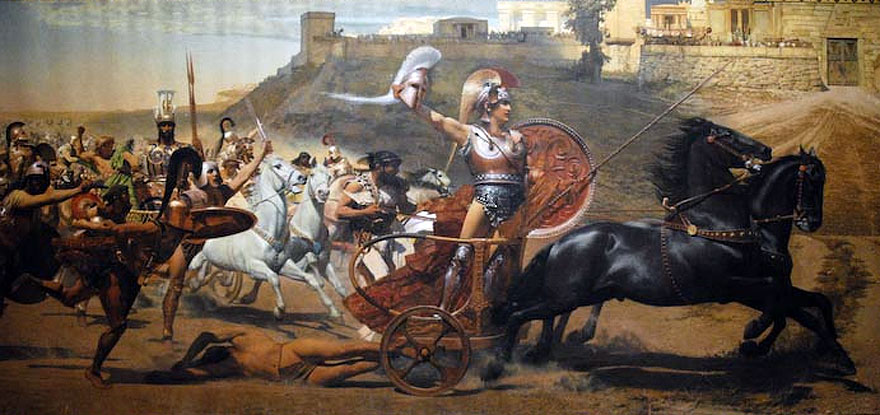
///
THE STORY OF THE TROJAN WAR
The war between the Greeks and the people of TTroy was traced to the source of wheat. The city of Troy controlled the sea trade toward the black sea . Troy or called Troas was the province of the kingdom of the Luds.. it was supported first by Egypt then finally by the Assyria.

city of Troy was a city near Pergamum


///
THE STORY OF THE TROJAN WAR
The war between the Greeks and the people of TTroy was traced to the source of wheat. The city of Troy controlled the sea trade toward the black sea . Troy or called Troas was the province of the kingdom of the Luds.. it was supported first by Egypt then finally by the Assyria.
story told by greek historian homer:
When the companies were thus arrayed, each under its own captain, the Trojans advanced likewild fowls or cranes that scream overhead when rain and winter drive them over the flowing waters to bring death and destruction on the Pygmies, and they wrangle in the air as they fly; but the Achaeans marched silently, in high heart, and minded to stand by one another.

Alexandrus came forward as champion on the Trojan side. On his shoulders he bore the skin of a panther, his bow, and his sword, and he brandished two spears shod with bronze as a challenge to the bravest of the Achaeans to meet him in single fight. Menelaus saw him thus stride out before the ranks, and was glad as a hungry lion . Even thus was Menelaus glad when his eyes caught sight of Alexandrus, for he deemed that now he should be revenged. He sprang, therefore, from his chariot, clad in his suit of armour.

Alexandrus quailed as he saw Menelaus come forward, and shrank in fear of his life under cover of his men. , when he comes suddenly upon a serpent in some mountain glade, even so did Alexandrus plunge into the throng of Trojan warriors, terror-stricken at the sight of the son of Atreus.

Then Hector upbraided him. "Paris," said he, " would that you had never been born, or that you had died unwed. Better so, than live to be disgraced a
. Will not the Achaeans mock at us and say that we have sent one to champion us who is fair to see but who has neither wit nor courage? Did you not, such as you are, get your following together and sail beyond the seas? Did you not from your a far country carry off a lovely woman wedded among a people of warriors—to bring sorrow upon your father, your city, and your whole country, but joy to your enemies, and hang-dog shamefacedness to yourself? And now can you not dare face Menelaus and learn what manner of man he is whose wife you have stolen? Where indeed would be your lyre and your love-tricks, your comely locks and your fair favour, when you were lying in the dust before him? The Trojans are a weak-kneed people, or ere this you would have had a shirt of stones for the wrongs you have done them."

Alexandrus answered, "Hector, your rebuke is just. You are hard as the axe which a shipwright wields at his work, and cleaves the timber to his liking. As the axe in his hand, so keen is the edge of your scorn. Still, taunt me not with the gifts has given me; they are precious; let not a man disdain them, . If you would have me do battle with Menelaus, bid the Trojans and Achaeans take their seats, while he and I fight, but let the rest swear to a solemn covenant of peace whereby you Trojans shall stay here in Troy, while the others go home to Argos and the land of the Achaeans."
When the companies were thus arrayed, each under its own captain, the Trojans advanced likewild fowls or cranes that scream overhead when rain and winter drive them over the flowing waters to bring death and destruction on the Pygmies, and they wrangle in the air as they fly; but the Achaeans marched silently, in high heart, and minded to stand by one another.
Alexandrus came forward as champion on the Trojan side. On his shoulders he bore the skin of a panther, his bow, and his sword, and he brandished two spears shod with bronze as a challenge to the bravest of the Achaeans to meet him in single fight. Menelaus saw him thus stride out before the ranks, and was glad as a hungry lion . Even thus was Menelaus glad when his eyes caught sight of Alexandrus, for he deemed that now he should be revenged. He sprang, therefore, from his chariot, clad in his suit of armour.

Alexandrus quailed as he saw Menelaus come forward, and shrank in fear of his life under cover of his men. , when he comes suddenly upon a serpent in some mountain glade, even so did Alexandrus plunge into the throng of Trojan warriors, terror-stricken at the sight of the son of Atreus.

Then Hector upbraided him. "Paris," said he, " would that you had never been born, or that you had died unwed. Better so, than live to be disgraced a
. Will not the Achaeans mock at us and say that we have sent one to champion us who is fair to see but who has neither wit nor courage? Did you not, such as you are, get your following together and sail beyond the seas? Did you not from your a far country carry off a lovely woman wedded among a people of warriors—to bring sorrow upon your father, your city, and your whole country, but joy to your enemies, and hang-dog shamefacedness to yourself? And now can you not dare face Menelaus and learn what manner of man he is whose wife you have stolen? Where indeed would be your lyre and your love-tricks, your comely locks and your fair favour, when you were lying in the dust before him? The Trojans are a weak-kneed people, or ere this you would have had a shirt of stones for the wrongs you have done them."

Alexandrus answered, "Hector, your rebuke is just. You are hard as the axe which a shipwright wields at his work, and cleaves the timber to his liking. As the axe in his hand, so keen is the edge of your scorn. Still, taunt me not with the gifts has given me; they are precious; let not a man disdain them, . If you would have me do battle with Menelaus, bid the Trojans and Achaeans take their seats, while he and I fight, but let the rest swear to a solemn covenant of peace whereby you Trojans shall stay here in Troy, while the others go home to Argos and the land of the Achaeans."
The Trojans and Achaeans were glad when they heard this, for they thought that they should now have rest. They backed their chariots toward the ranks, got out of them, and put off their armour, laying it down upon the ground;
. Hector sent two messengers to the city to bring the lambs and to bid Priam come, while Agamemnon told Talthybius to fetch the other lamb from the ships, and he did as Agamemnon had said.
. Hector sent two messengers to the city to bring the lambs and to bid Priam come, while Agamemnon told Talthybius to fetch the other lamb from the ships, and he did as Agamemnon had said.
Priam bade her draw nigh. "My child," said he, "take your seat in front of me that you may see your former husband, your kinsmen and your friends. I lay no blame upon you, it is the gods, not you who are to blame. It is they that have brought about this terrible war with the Achaeans. Tell me, then, who is yonder huge hero so great and goodly? I have seen men taller by a head, but none so comely and so royal. Surely he must be a king."

The old man marvelled at him and said, "Happy son of Atreus, child of good fortune. I see that the Achaeans are subject to you in great multitudes. When I was in Phrygia I saw much horsemen, the people of Otreus and of Mygdon, who were camping upon the banks of the river Sangarius; I was their ally, and with them when the Amazons, peers of men, came up against them, but even they were not so many as the Achaeans."

The old man marvelled at him and said, "Happy son of Atreus, child of good fortune. I see that the Achaeans are subject to you in great multitudes. When I was in Phrygia I saw much horsemen, the people of Otreus and of Mygdon, who were camping upon the banks of the river Sangarius; I was their ally, and with them when the Amazons, peers of men, came up against them, but even they were not so many as the Achaeans."

Then Idomeneus killed Phaesus, son of Borus the Meonian, who had come from Varne. Mighty Idomeneus speared him on the right shoulder as he was mounting his chariot, and the darkness of death enshrouded him as he fell heavily from the car.
The squires of Idomeneus spoiled him of his armour, while Menelaus, son of Atreus, killed Scamandrius the son of Strophius, a mighty huntsman and keen lover of the chase. Diana herself had taught him how to kill every kind of wild creature that is bred in mountain forests, but neither she nor his famed skill in archery could now save him, for the spear of Menelaus struck him in the back as he was flying; it struck him between the shoulders and went right through his chest, so that he fell headlong and his armour rang rattling round him.
Meriones then killed Phereclus the son of Tecton, who was the son of Hermon, a man whose hand was skilled in all manner of cunning workmanship, for Pallas Minerva had dearly loved him. He it was that made the ships for Alexandrus, which were the beginning of all mischief, and brought evil alike both on the Trojans and on Alexandrus himself; for he heeded not the decrees of heaven. Meriones overtook him as he was flying, and struck him on the right buttock. The point of the spear went through the bone into the bladder, and death came upon him as he cried aloud and fell forward on his knees.
Meges, moreover, slew Pedaeus, son of Antenor, who, though he was a bastard, had been brought up by Theano as one of her own children, for the love she bore her husband. The son of Phyleus got close up to him and drove a spear into the nape of his neck: it went under his tongue all among his teeth, so he bit the cold bronze, and fell dead in the dust.
And Eurypylus, son of Euaemon, killed Hypsenor, the son of noble Dolopion, who had been made priest of the river Scamander, and was honoured among the people as though he were a god. Eurypylus gave him chase as he was flying before him, smote him with his sword upon the arm, and lopped his strong hand from off it. The bloody hand fell to the ground, and the shades of death, with fate that no man can withstand, came over his eyes.
Thus furiously did the battle rage between them. As for the son of Tydeus, you could not say whether he was more among the Achaeans or the Trojans. He rushed across the plain like a winter torrent that has burst its barrier in full flood; no dykes, no walls of fruitful vineyards can embank it when it is swollen with rain from heaven, but in a moment it comes tearing onward, and lays many a field waste that many a strong man's hand has reclaimed—even so were the dense phalanxes of the Trojans driven in rout by the son of Tydeus, and many though they were, they dared not abide his onslaught.
...Now when the son of Lycaon saw him scouring the plain and driving the Trojans pell-mell before him, he aimed an arrow and hit the front part of his cuirass near the shoulder: the arrow went right through the metal and pierced the flesh, so that the cuirass was covered with blood. On this the son of Lycaon shouted in triumph, "Knights Trojans, come on; the bravest of the Achaeans is wounded, and he will not hold out much longer if King Apollo was indeed with me when I sped from Lycia hither."
Then he came upon two sons of Priam, Echemmon and Chromius, as they were both in one chariot. He sprang upon them as a lion fastens on the neck of some cow or heifer when the herd is feeding in a coppice. For all their vain struggles he flung them both from their chariot and stripped the armour from their bodies. Then he gave their horses to his comrades to take them back to the ships.
When Aeneas saw him thus making havoc among the ranks, he went through the fight amid the rain of spears to see if he could find Pandarus. When he had found the brave son of Lycaon he said, "Pandarus, where is now your bow, your winged arrows, and your renown as an archer, in respect of which no man here can rival you nor is there any in Lycia that can beat you? Lift then your hands to Jove and send an arrow at this fellow who is going so masterfully about, and has done such deadly work among the Trojans. He has killed many a brave man—unless indeed he is some god who is angry with the Trojans about their sacrifices, and and has set his hand against them in his displeasure."
And the son of Lycaon answered, "Aeneas, I take him for none other than the son of Tydeus. I know him by his shield, the visor of his helmet, and by his horses. It is possible that he may be a god, but if he is the man I say he is, he is not making all this havoc without heaven's help, but has some god by his side who is shrouded in a cloud of darkness, and who turned my arrow aside when it had hit him. I have taken aim at him already and hit him on the right shoulder; my arrow went through the breastpiece of his cuirass; and I made sure I should send him hurrying to the world below, but it seems that I have not killed him. There must be a god who is angry with me. Moreover I have neither horse nor chariot. In my father's stables there are eleven excellent chariots, fresh from the builder, quite new, with cloths spread over them; and by each of them there stand a pair of horses, champing barley and rye; my old father Lycaon urged me again and again when I was at home and on the point of starting, to take chariots and horses with me that I might lead the Trojans in battle, but I would not listen to him; it would have been much better if I had done so, but I was thinking about the horses, which had been used to eat their fill, and I was afraid that in such a great gathering of men they might be ill-fed, so I left them at home and came on foot to Ilius armed only with my bow and arrows. These it seems, are of no use, for I have already hit two chieftains, the sons of Atreus and of Tydeus, and though I drew blood surely enough, I have only made them still more furious. I did ill to take my bow down from its peg on the day I led my band of Trojans to Ilius in Hector's service, and if ever I get home again to set eyes on my native place, my wife, and the greatness of my house, may some one cut my head off then and there if I do not break the bow and set it on a hot fire—such pranks as it plays me."
Aeneas answered, "Say no more. Things will not mend till we two go against this man with chariot and horses and bring him to a trial of arms. Mount my chariot, and note how cleverly the horses of Tros can speed hither and thither over the plain in pursuit or flight. If Jove again vouchsafes glory to the son of Tydeus they will carry us safely back to the city. Take hold, then, of the whip and reins while I stand upon the car to fight, or else do you wait this man's onset while I look after the horses."
Aeneas answered, "Say no more. Things will not mend till we two go against this man with chariot and horses and bring him to a trial of arms. Mount my chariot, and note how cleverly the horses of Tros can speed hither and thither over the plain in pursuit or flight. If Jove again vouchsafes glory to the son of Tydeus they will carry us safely back to the city. Take hold, then, of the whip and reins while I stand upon the car to fight, or else do you wait this man's onset while I look after the horses."
/
Walang komento:
Mag-post ng isang Komento